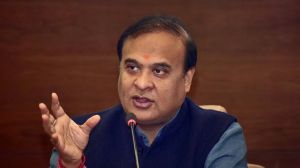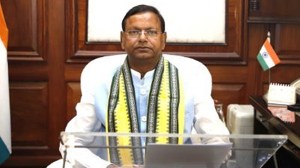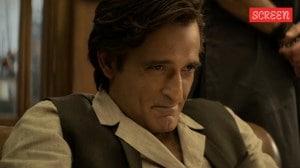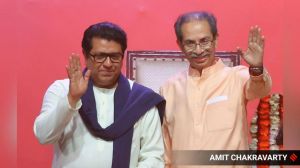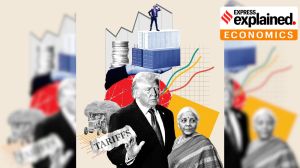An Uncensored View
Once again the film industry has locked horns with the film Censor Board of India. Once again, I find myself under the microscopic glare of ...

Once again the film industry has locked horns with the film Censor Board of India. Once again, I find myself under the microscopic glare of the custodians of our great culture. It happened at the dawn of my career with my first film, Manzilen Aur Bhi Hain; then, at the high noon of my career with Sadak; and now as my directorial life comes to an end, my film Zakhm is in trouble with the Censor Board. The Board has recommended my love story to the Home Ministry because they feel it deals with a sensitive issue. Well, they8217;re quite right: It does deal with a sensitive issue, that8217;s why I made a film about it. But Zakhm is not a film with a political agenda. It has no ideology. It is an emotional tale of pain and perseverence, deeply personal and intimate. It8217;s a simple story of a promise a son made to his mother 8211; a promise that people with fundamentalist ideologies object to for their own political ends. But the son8217;s love is too strong and will not be thwarted. And in the end onhis way to fuilfill his promise he says the words, 8220;Maa ki jaat nahin hoti.8221; I feel this way about India and if the Censor Board finds that sentiment objectionable then it8217;s a pity.
Obviously, in 24 years of my film career, nothing has changed. And I have no illusions that anything ever will. All murmurs of change are just ripples on the surface of the ocean. Deep down everything remains the same.
8220;Your minister of state for Information and Broadcasting, Mr Naqvi has a unique proposal to help the film industry tide over the censorship problems it8217;s facing,8221; said the voice on the phone summing up the news article published that day. 8220;What8217;s your response Mr Bhatt?8221; asked the journalist.
Well, here8217;s my response: These exercises, no matter how well intentioned, do not really look at the problem straight in the eye. Mr Naqvi, in his suggestion that the film producers must submit their scripts to the Censor Board before beginning their principal photography, certainly hopes to reduce thetrouble of the harrassed producer, but fails to address the effects this pleasure would have on the mind of the filmmaker. Can the screenwriter really hope to unleash his imagination or dig deep into the well of his consciousness with the intimidating shadow of the Censor Board looming over his writing desk? Has any significant work ever bloomed under the stern eye of the state? Don8217;t we know that the gap between conception and execution is often huge? Filmmaking is a dynamic process. Film scripts grow, they change, evolve. The end product is, more often than not, quite different from what it had set out to be. Wanting to regulate this natural process is like wanting to control the stream of life. And that is just not possible. The only permanent thing in life is change and censorship in any form stands for status quo. Thus the battle between the filmmaker and the Censor Board is unavoidable. Doomed to be our adversary, the Censor Board often ignores what George Orwell says: 8220;Freedom is the right to tellpeople what they do not want to hear.8221; I wonder how long we will go on pretending to ourselves that the individual is a heart-beat of a healthy democracy? If we really belived that, we wouldn8217;t gag him and stifle him by saying that his individiual expression of speech needs to be sacrificed at the altar of collective interest.
Freedom of speech is essential, not just for democracy as we know it, but for a reason even more fundamental, which is that any government is a tyrranny if it does not enjoy, in the main and overall, at least the informal consent of the governed.
I am reminded with envy of the what the CEO of Walt Disney has said: 8220;Never in my entire career of 40 years have I ever been bogged down by the fear of what would happen if I made a particular film which is perceived to be subversive. I know,8221; he said, 8220;that no authority, no Congressmen, and not even the President of USA would prevent me from making the film I chose to.8221; This is the power of American cinema. And this is the power oftrue democracy. Unless we achieve what the filmmakers in America have achieved, we cannot proudly proclaim to ourselves that we are the world8217;s largest democracy.
- 01
- 02
- 03
- 04
- 05








